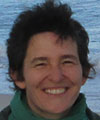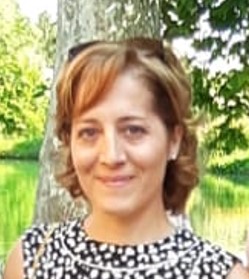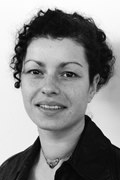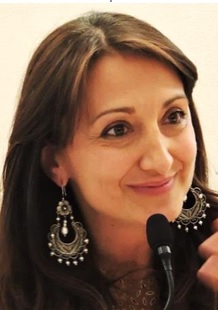Studying at the University of Verona
Here you can find information on the organisational aspects of the Programme, lecture timetables, learning activities and useful contact details for your time at the University, from enrolment to graduation.
Academic calendar
The academic calendar shows the deadlines and scheduled events that are relevant to students, teaching and technical-administrative staff of the University. Public holidays and University closures are also indicated. The academic year normally begins on 1 October each year and ends on 30 September of the following year.
Course calendar
The Academic Calendar sets out the degree programme lecture and exam timetables, as well as the relevant university closure dates..
| Period | From | To |
|---|---|---|
| Sem. 1A | Sep 21, 2020 | Oct 31, 2020 |
| Sem. 1B | Nov 9, 2020 | Jan 9, 2021 |
| Sem. 2A | Feb 15, 2021 | Apr 1, 2021 |
| Sem. 2B | Apr 14, 2021 | May 29, 2021 |
| Session | From | To |
|---|---|---|
| Sessione d'esame invernale | Jan 14, 2021 | Feb 13, 2021 |
| Sessione d'esame estiva | Jun 7, 2021 | Jul 24, 2021 |
| Sessione d'esame autunnale | Aug 23, 2021 | Sep 18, 2021 |
| Session | From | To |
|---|---|---|
| Sessione di laurea estiva | Jul 5, 2021 | Jul 10, 2021 |
| Sessione di laurea autunnale | Nov 8, 2021 | Nov 13, 2021 |
| Sessione di laurea invernale | Mar 28, 2022 | Apr 1, 2022 |
| Period | From | To |
|---|---|---|
| Festa di Ognissanti | Nov 1, 2020 | Nov 1, 2020 |
| Festa dell'Immacolata | Dec 8, 2020 | Dec 8, 2020 |
| Vacanze di Natale | Dec 24, 2020 | Jan 6, 2021 |
| Vacanze di Pasqua | Apr 2, 2021 | Apr 6, 2021 |
| Festa della liberazione | Apr 25, 2021 | Apr 25, 2021 |
| Festa del lavoro | May 1, 2021 | May 1, 2021 |
| Festa del Santo Patrono | May 21, 2021 | May 21, 2021 |
| Festa della Repubblica | Jun 2, 2021 | Jun 2, 2021 |
| Vacanze estive | Aug 9, 2021 | Aug 15, 2021 |
Exam calendar
Exam dates and rounds are managed by the relevant Humanistic Studies Teaching and Student Services Unit.
To view all the exam sessions available, please use the Exam dashboard on ESSE3.
If you forgot your login details or have problems logging in, please contact the relevant IT HelpDesk, or check the login details recovery web page.
Should you have any doubts or questions, please check the Enrollment FAQs
Academic staff
 giorgia.decarli@univr.it
giorgia.decarli@univr.it
 licia.landi@univr.it
licia.landi@univr.it
 domenico.lipari@univr.it; domenico.lipari@uniroma1.it
domenico.lipari@univr.it; domenico.lipari@uniroma1.it
 angeloluigi.sangalli@univr.it
angeloluigi.sangalli@univr.it
Study Plan
The Study Plan includes all modules, teaching and learning activities that each student will need to undertake during their time at the University.
Please select your Study Plan based on your enrollment year.
1° Year
| Modules | Credits | TAF | SSD |
|---|
2° Year activated in the A.Y. 2021/2022
| Modules | Credits | TAF | SSD |
|---|
3° Year activated in the A.Y. 2022/2023
| Modules | Credits | TAF | SSD |
|---|
| Modules | Credits | TAF | SSD |
|---|
| Modules | Credits | TAF | SSD |
|---|
| Modules | Credits | TAF | SSD |
|---|
| Modules | Credits | TAF | SSD |
|---|
Legend | Type of training activity (TTA)
TAF (Type of Educational Activity) All courses and activities are classified into different types of educational activities, indicated by a letter.
Ethics of Care (2021/2022)
Teaching code
4S007333
Teacher
Coordinator
Credits
6
Language
Italian
Scientific Disciplinary Sector (SSD)
M-FIL/03 - MORAL PHILOSOPHY
Period
Sem. 1A dal Sep 27, 2021 al Nov 6, 2021.
Learning outcomes
1) Knowledge and understanding of the psychological theories on the fundamental processes, according to which individuals interact with, and adapt to, their material and social environment; 2) Knowledge and understanding of the theories on psychological dynamics within working environments and in organisations, including personal motivations, satisfaction, and well-being; 3) Knowledge and understanding of work processes, the legal aspects that regulate them, and related ethical aspects; 4) Applying the different perspectives of law, sociology of work, ethics and anthropology to read and understand diversity and migration, in order to favor and support processes of social and cultural inclusion. SPECIFIC LEARNING OUTCOMES. a) To develop the ability to autonomously express statements about the different ways human interaction occurs within a social and material environment from an ethical perspective. In particular, students will focus on human self-realization (both as individuals and as a society) in the practical sphere, especially at work; b) To develop sufficient communicative skills and comprehension abilities so to enable students to apply general ethical notions to some of the main moral issues of present-day world, especially inclusivity, defense of pluralism, and valorization of difference(s).
Program
TOPICS OF THE COURSE
Title of the course: Dilemmas. Why bioethics is so important for our lives
The course will consist of two parts. The first will deal with a short but comprehensive history of moral philosophy, presenting the ethical thinking of some of the greatest philosophers (Socrates, Plato, Aristotle, medieval ethics, modern ethics, Kant, Nietzsche, contemporary ethics) as well as the main ethical questions discussed by philosophers through the centuries, such as good, evil, happiness, must, and justice.
The second part will deal with bioethics’ main issues. Though relatively recent, bioethics deals with questions both socially divisive and concerning us closely, such as end-of-life or genetic manipulation. But a global world requires global solutions: for instance, is it really possible to separate the above-mentioned problems from present-day ecological crisis? This is why bioethics has rethought itself by leaving aside specialistic approaches, favouring instead a vision both global and all-encompassing.
TEACHING
Students attending the classes will receive a) the basic theoretical and historical notions on the various forms in which the ethical reflection has been shaped within the context of Western civilization, and b) an analysis of the topics addressed in the second part of the course, which may feature lectures provided on specific issues by experts. Beside the texts found in the bibliography, the audio files of the lessons together with any file posted on the Moodle platform are a compulsory part of the studying material.
Meeting hours for students are scheduled during the whole academic year: days and hours may be found at the personal webpage of the teacher, and they are constantly updated. Dates and hours of the single lessons are provided before the beginning of the course; any variation will be promptly communicated in the News section of the teacher’s personal webpage, and by email via the Quickmail tool of the Moodle platform.
As for those students who will not attend classes, they can choose a more personal approach to the course (to be jointly decided with the teacher) by reading other texts in addition to the general bibliography.
Texts are the same for all students, be they attending or not:
− Francesca Marin, L’agenda della bioetica. Problemi e prospettive, Il poligrafo, Padova 2019. Only the chapters: I capitoli: Sull'utilizzo dell'aggettivo 'globale'; I diversi significati di salute; La relazione di cura.
Bibliography
Examination Methods
EXAMINATIONS
The final examination will consist of a written test, which will comprise ten multi-choice questions (only one answer is correct, for a score of 1/30 each) and two open questions (maximum score 10/30 each), aimed to ascertain students’ knowledge on the following topics: 1) history of Western ethics; 2) knowledge on the subjects dealt with in the second part of the course.
The same rules apply for students who do NOT attend the classes. The test will last two hours.
NB: In case of a low turnout, the examination will be oral: students will be promptly informed of any variation in the News section of the teacher’s personal webpage, and by email via the Quickmail tool of the Moodle platform.
As a consequence of the persistence of the emergency determined by the CoViD-19 pandemic, the modality of the final examination might change: in this case, students will be informed in advance of any modification that might occur.
Type D and Type F activities
Modules not yet included
Career prospects
Module/Programme news
News for students
There you will find information, resources and services useful during your time at the University (Student’s exam record, your study plan on ESSE3, Distance Learning courses, university email account, office forms, administrative procedures, etc.). You can log into MyUnivr with your GIA login details: only in this way will you be able to receive notification of all the notices from your teachers and your secretariat via email and soon also via the Univr app.
Gestione carriere
Linguistic training CLA
Student mentoring
Practical information for students
Documents
| Title | Info File |
|---|---|
|
|
pdf, it, 325 KB, 02/05/23 |
|
|
pdf, it, 212 KB, 02/05/23 |
|
|
pdf, it, 131 KB, 02/05/23 |
Graduation
Documents
| Title | Info File |
|---|---|
|
|
pdf, it, 99 KB, 13/10/23 |
|
|
pdf, it, 101 KB, 10/04/24 |
|
|
pdf, it, 296 KB, 28/07/22 |
|
|
pdf, it, 142 KB, 28/07/22 |
|
|
octet-stream, it, 24 KB, 28/07/22 |
List of theses and work experience proposals
Stage e Tirocini
Le attività che ci si aspetta il/la tirocinante curriculare in Scienze psicologiche per la formazione svolga presso gli enti che lo/la ospitano riguardano principalmente attività di affiancamento nei seguenti ambiti:
- Formazione, sviluppo, innovazione e gestione delle risorse umane;
- Orientamento scolastico e professionale;
- Ricerca, selezione e valutazione psicologica del personale.
Sono ritenuti ambiti adeguati le diverse agenzie per il lavoro, le agenzie di formazione, le agenzie di orientamento, le società di consulenza e tutti gli enti, le associazioni, le aziende, le imprese e, in generale, le organizzazioni che al loro interno operano attività di ricerca, selezione e valutazione psicologica del personale, attività di formazione, sviluppo, innovazione e gestione delle risorse umane e attività di orientamento scolastico e professionale. Anche enti di ricerca e Università dove si conducono studi e indagini su questi temi sono ambiti ritenuti adeguati.
Lo/la studente/essa sarà seguito/a da un tutor accademico e da un tutor aziendale. Alle attività di tirocinio sono attribuiti 9 CFU (pari a 225 ore).
Il tutor aziendale deve essere un laureato in psicologia anche non iscritto all’albo.
Linee Guida per lo Svolgimento dei Tirocini Curriculari
- Tutte le informazioni in merito agli stage per futuri studenti sono disponibili alla pagina Stage e tirocini.
- Tutte le informazioni in merito agli stage per studenti iscritti sono pubblicate in MyUnivr - come fare per - stage e tirocini.
- Tutte le informazioni in merito agli stage per le aziende sono disponili alla pagina Stage e tirocini per azienze.

 3356852559
3356852559

























